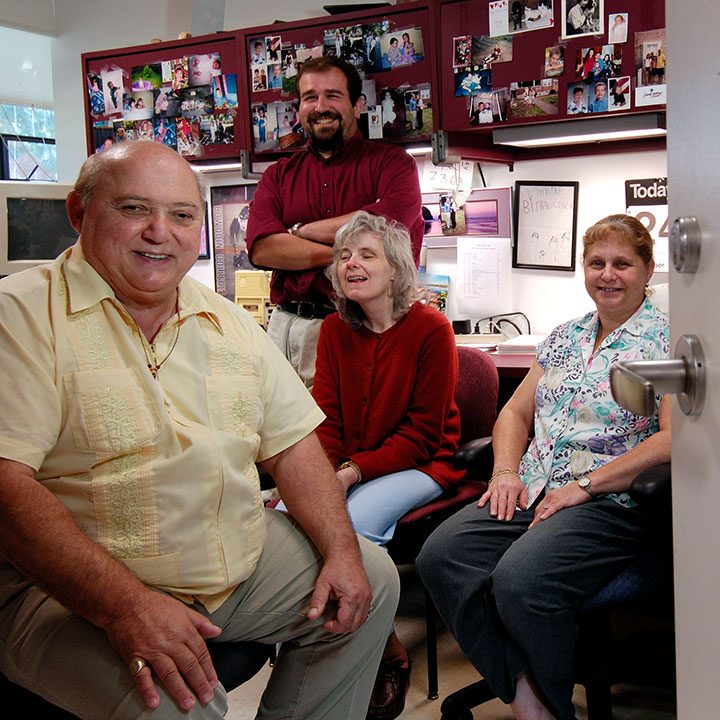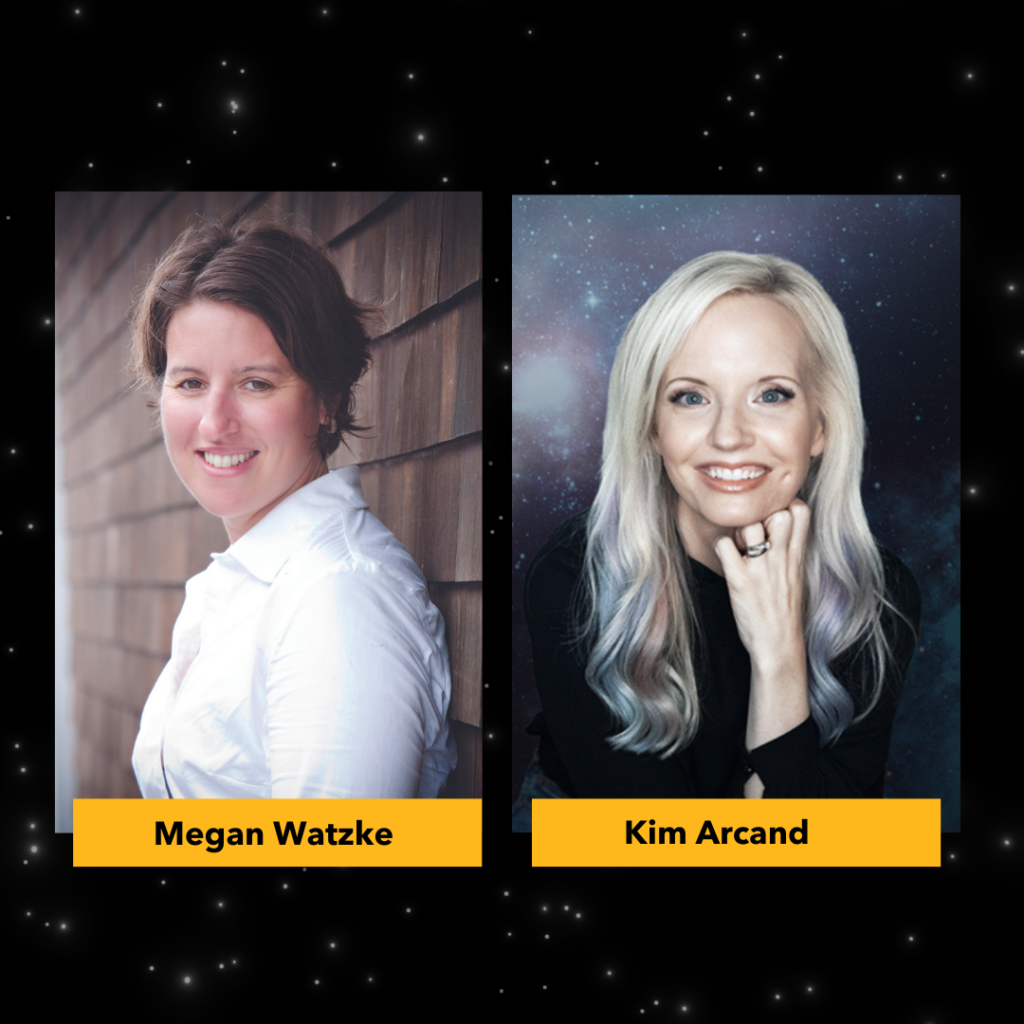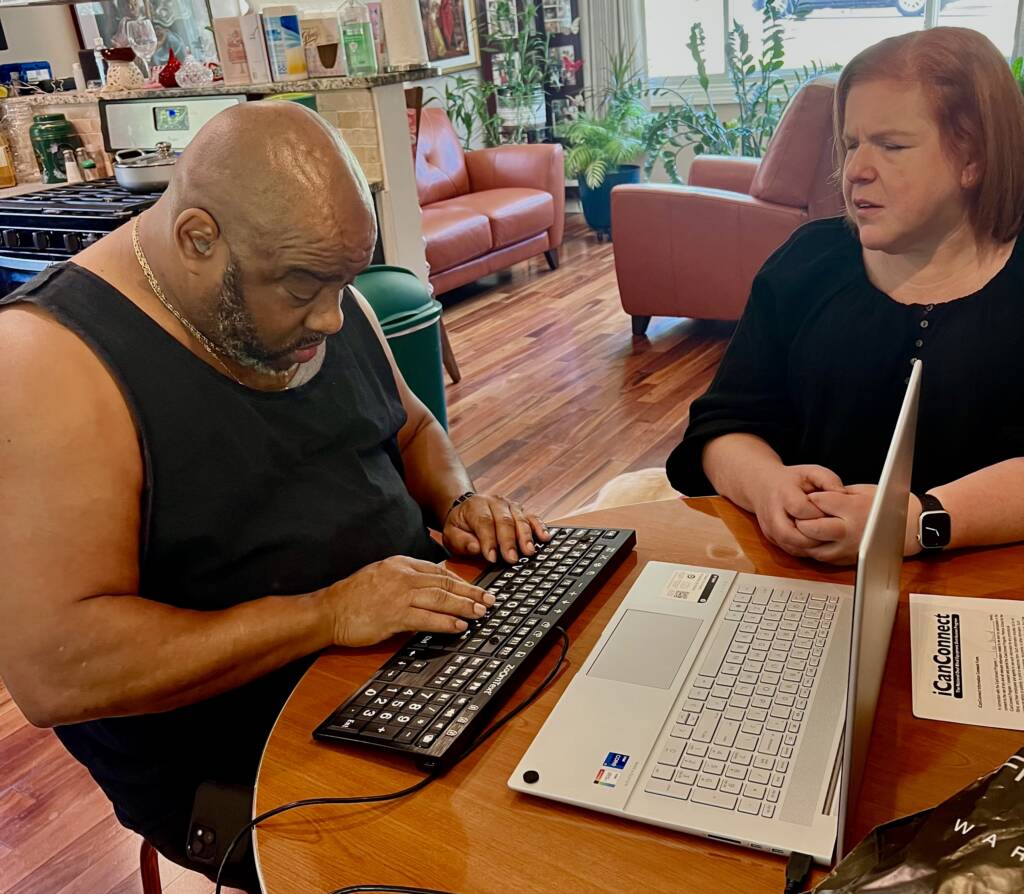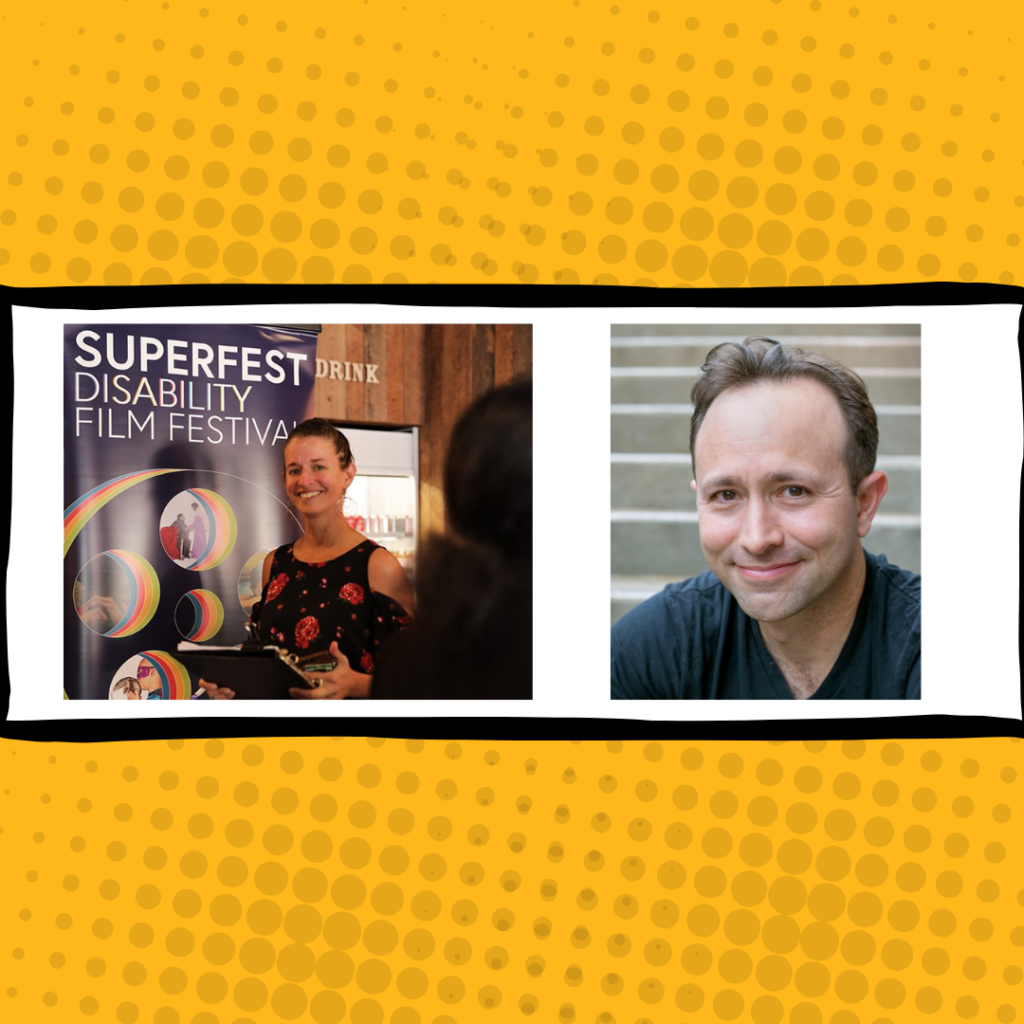Growing up, I went to Catholic school in the 40’s. In first or second grade, the nuns asked the kids to open up a book and read. I opened up the book, but the print was too small to read the page. So I had to put my head very close down to the page in order to read it. A nun grabbed my neck and told me to stop goofing around and to read the book. But I couldn’t see it, so I put my head down again. The same thing happened. What affected me more than anything were the kids who were laughing during this whole ordeal. After that I hated school, and I hated not being able to see. I knew that I couldn’t see well, and to keep kids from laughing at me, I became a clown and a discipline problem. That way, they would be laughing with me. By the time I went to the 12th grade, the school gave me a diploma and had me leave without being able to read.
I could not get a job that required me filling out an application. I would get small jobs, like a longshoreman who emptied cargo from ships, as an extra. Or I’d work delivering things for a store. I was making 75 cents an hour for two years. When I turned 17 I graduated and it was like going down the chutes because I couldn’t read and couldn’t do any job that required reading.
Then I heard about Perkins, my father was sitting down reading the paper and said I had to get a job, and read something about Perkins. I knew I had to go there. I remember walking down the campus; I felt it right in my heart when I stepped foot there. I met Mr. Ben Smith, the director of the Deafblind program, and he offered me the job of taking care of two deafblind elementary school boys in the program. I loved working with the kids. When I was young, I was a tough kid because to be accepted I had to stand up for myself. Working with these young kids, I was so impressed with how happy, playful, and confident they were.
While working at Perkins, I met my mentor- Richard, also known as Moose. He was the gym teacher and the wrestling coach at Perkins, and he taught me how to be a teacher and let me help out in the gym. I couldn’t be an actual gym teacher because I still couldn’t read. I used to have meetings about kids and they’d hand out papers and I still couldn’t read them, so I’d have to just listen. When I had time off, I’d go home and my sister would read the memos for me and read me the materials for 2 years.
Eventually, my mentor left Perkins, the new gym teacher didn’t need an assistant, and I was increasingly frustrated with not being able to read. One time, when I was 22, I was at MEEI and was crying because I couldn’t read or see. A guy walked past the examination room and overheard me, then called me into his office. He had been experimenting with magnification and handed me a special pair of glasses called Keeler magnifiers. It was incredible. I went to the Harvard Coop right afterwards and bought books on reading, spelling, grammar, and everything to teach myself how to read.
Perkins closed in June years ago, so I went home and took my glasses. Then September came around and I started taking classes at Newman Prep, but I wanted to go to college. So I enrolled in Quincy Junior College and convinced them that I could take a couple classes, as they were worried that I wouldn’t be able to succeed. The first time I read a page in class aloud and nobody laughed was when I finally believed I was not mentally disabled.
One of the biggest advances is technology. In college, I used to have to someone read to me. Today, I can pull anything online up, which gives me an opportunity to feel equal to my colleagues. I have a better understanding of who I am now, and I realize there are things I can and cannot do, whereas when I was younger I only knew what I couldn’t do.
So now I don’t feel inferior to anyone. I know who I am and what I’m worth, and Perkins has brought this out. When you are around people who are energetic, empowering, and enthusiastic, it’s impossible not to feel that way, too. I get energy from the campus because I know the history, and I know what we are trying to do now. It’s making me feel that blind people are getting a better chance to survive and be accepted in society. I know kids can get out of doing things because they are visually impaired, and kids can manipulate that (I used to), and something I like about Perkins is making people aware about what everyone can do. Dr. Howe showed that blind people could read and break down barriers. We would rather have people understand that I realize what I can and can’t do, and I want others to have a realistic view of what they can and cannot do and it comes from them with empowering communities, not feel limited by their community.
I still work at Perkins, though now I am the Manager of Volunteer Services. I believe greatly that volunteers are an integral part of the school, and they are vital to the community of Perkins. Volunteers can become friends, bring energy, and form connections with people on campus. Back when I was teaching physical education, I taught swimming. I remember there was one kid I had and I swear I taught this kid everything I knew to try to get them to learn to swim, but I couldn’t do it. I had this girl over at Shady Hill who wanted to volunteer and she had never had experience teaching, but she connected with this child. And when she was working with him, he would put his face in the water and was doing kicks. It’s incredible how helpful it can be to have new energy and assistance from volunteers.
Outside of work, I love to cook and have parties. I have a man cave and enjoy having people around. I love sports and hanging out with my family. I have a wife, a son, and daughter. My son teaches at Roxbury Latin and is a hockey and baseball coach, my daughter is an interpreter for the deaf. I have two granddaughters, and a grandson and granddaughter. I write my grandchildren letters all the time emphasizing potential, family, love, and the importance of equality. I like to go out to dinner, watch plays, and see movies now that they are audio described.
Mike Cataruzolo, a beloved employee at Perkins School for the Blind, passed away in 2020, but his legacy lives on.



